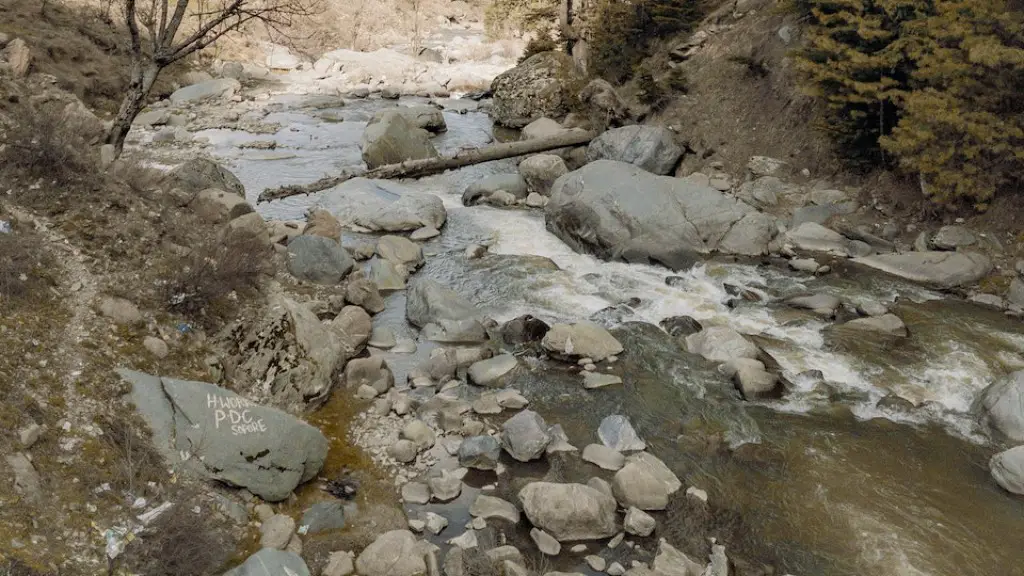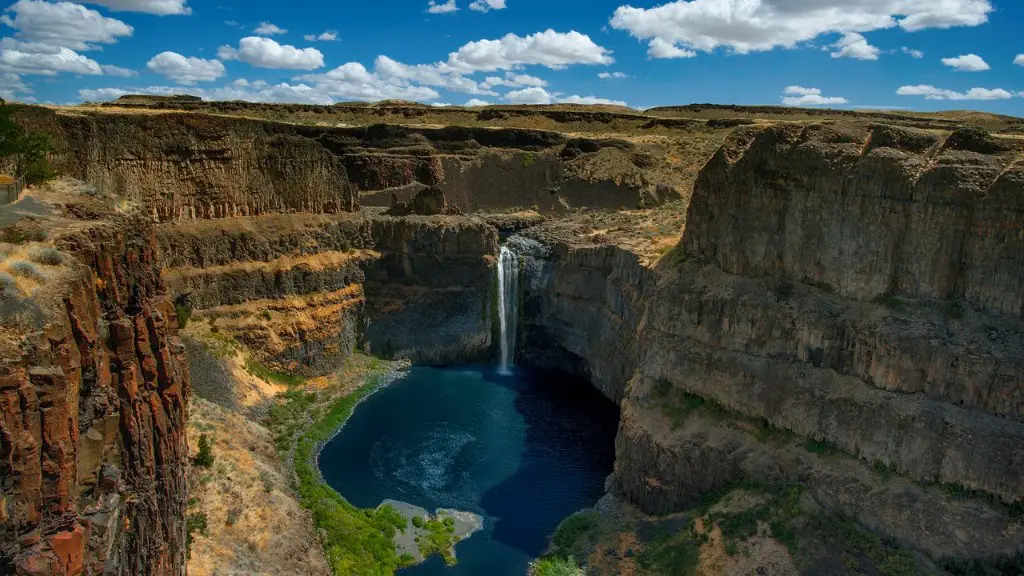The History of Gold in the Nile River
It is believed that the ancient Egyptians of the Nile seemed to have found gold in the river since as early as 3500 BCE. It is believed that gold was mined from the river bed itself, and also sourced via tributaries that ran off the main river. Egyptians used this gold to create luxurious items such as jewellery, ornamental items, and even to build tombs. The Egyptian Pharaohs were known to have adorned themselves with gold, and were even buried in solid-gold coffins. This gold is known to have been obtained by panning and dredging the waters of the River Nile in the hope of retrieving it.
Gold Depletion
The excessive mining of gold in the waters of the Nile has caused severe depletion of the golden reserve over the millennia. It appears that by the 4th century AD the Egyptians had already depleted much of the gold reserves. The erosion of gold in the river bed was also a great possibility and with the continuous damming of the river to control the floods, made the replenishment of gold a daunting task. This has led to many experts concluding that there is very little gold left in the waters of the Nile today.
Factors Impacting Gold Mining
The mining industry in the Nile River has been greatly impacted by a few key factors, including:
- The political turmoil in recent years in the area: This has meant that the industry is almost completely at standstill, with no new projects in the pipeline. The gold mining is also known to suffer due to the political clashes in the region.
- Impact of pollution on the river: With the rapid industrialization along the river banks, the water has become so polluted that it has become almost impossible to mine for gold without putting the workers at risk. The contamination has altered the chemistry of the river water which has meant that the metals needed to be extracted by dredging can no longer be retrieved efficiently.
- Restricted access to gold deposits: Much of the gold deposits remain inaccessible, locked away beneath thick layers of mud and sand. Besides, with limited resources for modern gold exploitation tools, retrieving even what little is left has become too risky an endeavor.
Gold Mining Today
Although practising gold mining in the Nile is all but illegal, there are still some who are passionate and willing to go against the law and exploit what is left of the river’s gold reserves. This is done mostly by small-scale miners who use small hand-held tools to sieve through the river sands in the hopes of finding a trace of gold. The small-scale miners use mercury and cyanide to help them extract the gold. This poses a serious threat to the surrounding environment as these chemicals are highly noxious and damaging.
The Potential for Gold Recovery
Experts believe that with proper management, the gold reserves in the river could be harnessed in an efficient, eco-friendly manner. But due to the lack of adequate investment and resources into gold mining research, the potential has not been unlocked yet. However, with technological advances in this field, and increased attention to the environment, many experts hope that the future of exploiting gold in the Nile might be brighter.
The Alternate Sources
Even if gold mining in the Nile is never resumed again, there are several other sources of this precious metal. Mining in neighboring countries in Africa like Ghana, Mali, Eritrea, and Tanzania, is known to yield a fair amount of gold. Although the gold mined in these regions is not of the same quality and quantity as the ancient Egyptian gold, it is still highly sought after and is mined in a more environmentally-friendly manner.
The Future of Gold Mining in the Nile
Due to the unprecedented depleting of gold reserves in the Nile, it has become clear that mining for gold in the river is nearing its end. It is unlikely that any form of large-scale gold mining will ever be resumed in the river. This is due to the difficulties posed by the political unrest, pollution, and the restricted access to gold deposits. Still, with advances in technology, the possibility of better gold recovery methods, and a more knowledgeable and conscious workforce, the dream of harvesting gold in the Nile is not completely lost.
Exploiting Gold in Other Countries
With the ongoing rockiness of gold-mining in the Nile, other countries across Africa have become a go-to for those looking for gold. Ghana, Mali, Eritrea, and Tanzania all have busy mining industries, some of which have been operating for centuries. These countries take much more care with the environment than centuries past, and their gold mine operations tend to follow more sustainable guidelines for the extraction of their gold.
Changes in Gold Mining Practices
Yet there is a concern that not all of these African mines are using sustainable practices. Unsustainable practices such as using mercury and cyanide lead to serious environmental risks, and must be monitored. To prevent further environmental damage, they must be regulated and monitored constantly.
A New Age of Consciousness
The Nile will probably never again reach the heights of its past glory, where its banks produced vast amounts of gold. Experts believe that if any form of gold-mining is to take place in the future, it is to be done with a higher sense of respect for the environment. All of us need to push for a more conscious form of gold-recovery, one where the environment is given more importance than before. With the combined effort of industry leaders, researchers, environmentalists and passionate activists, gold-mining in the Nile might one day be fruitful and sustainable.


